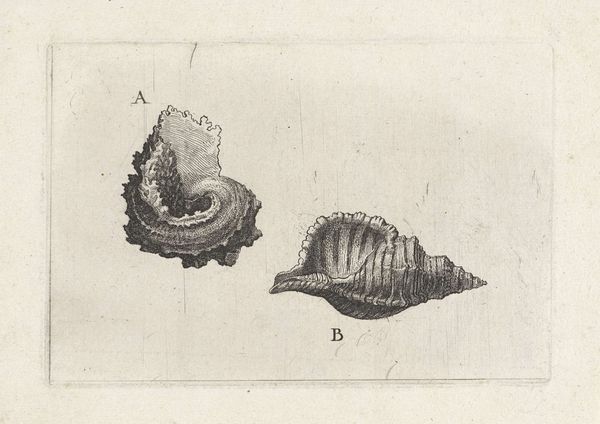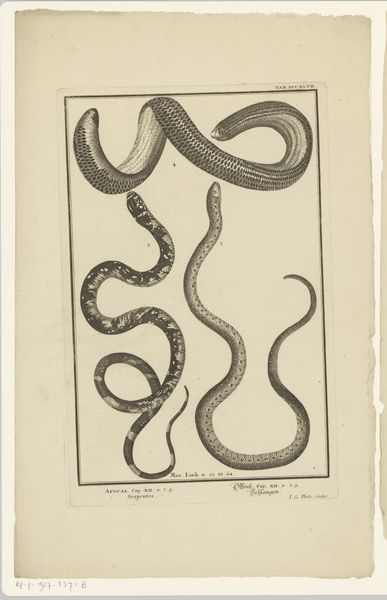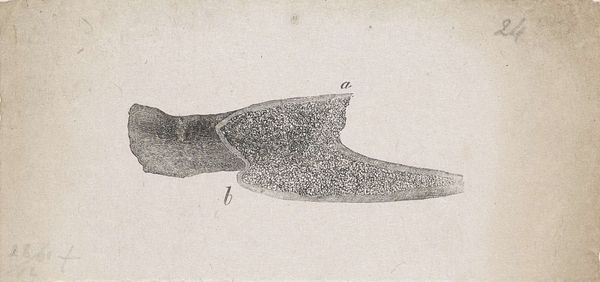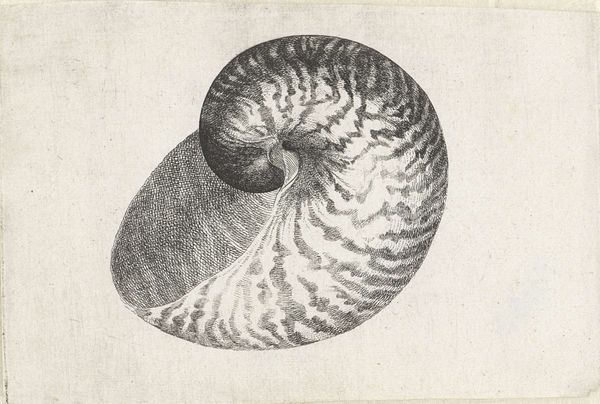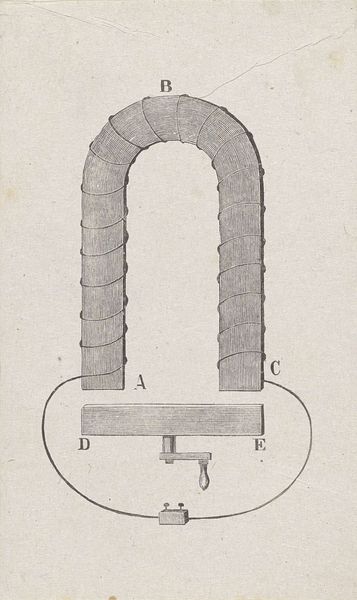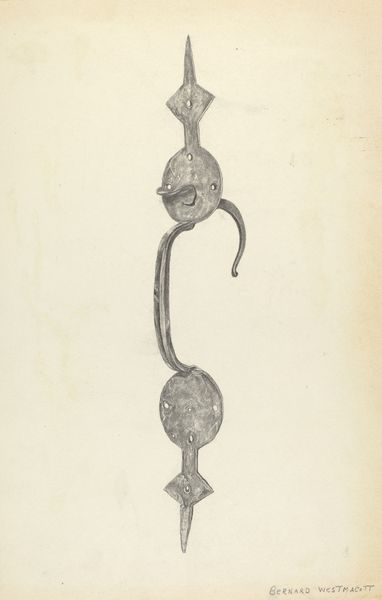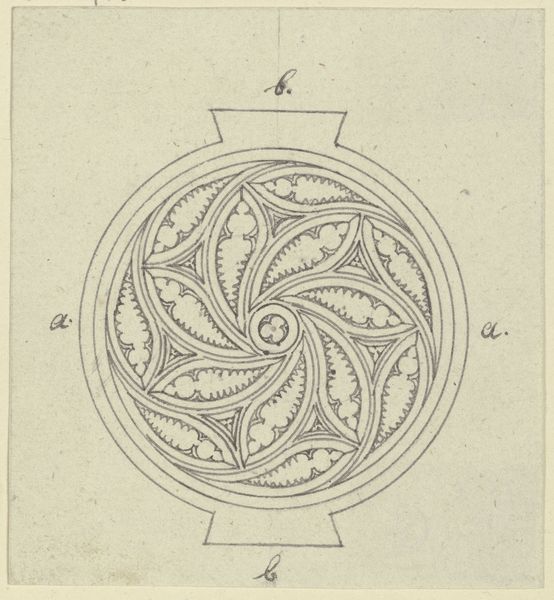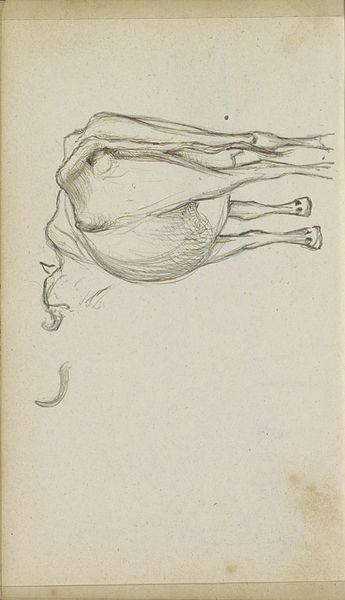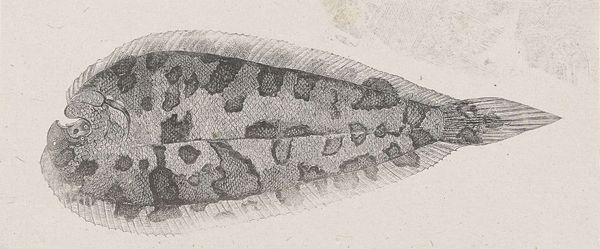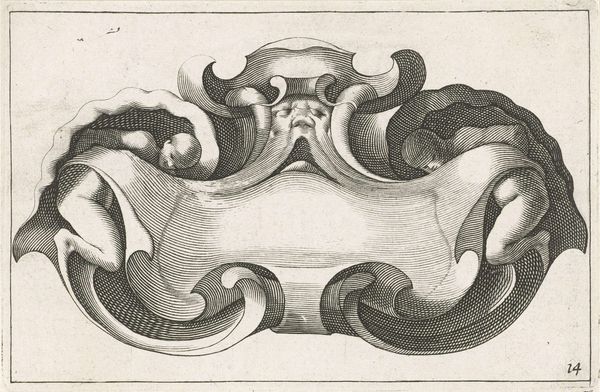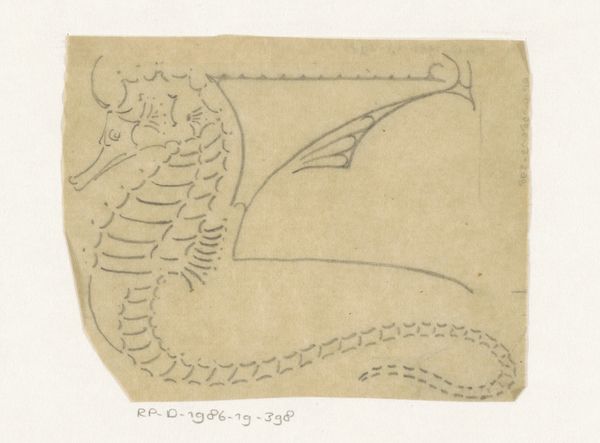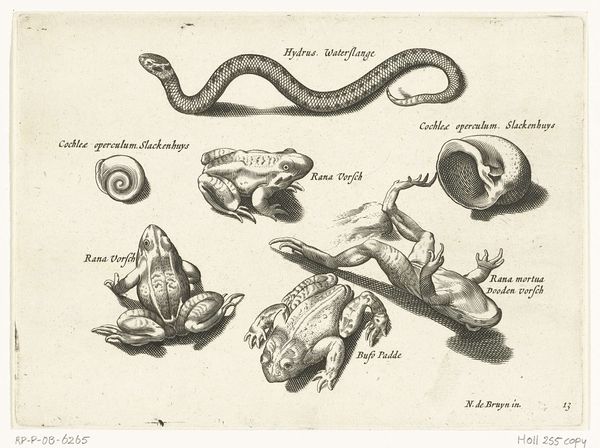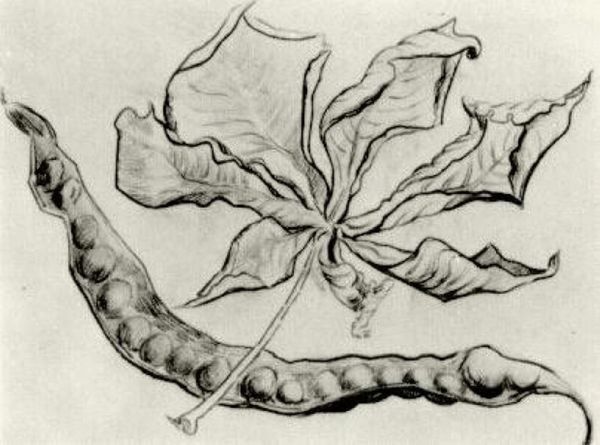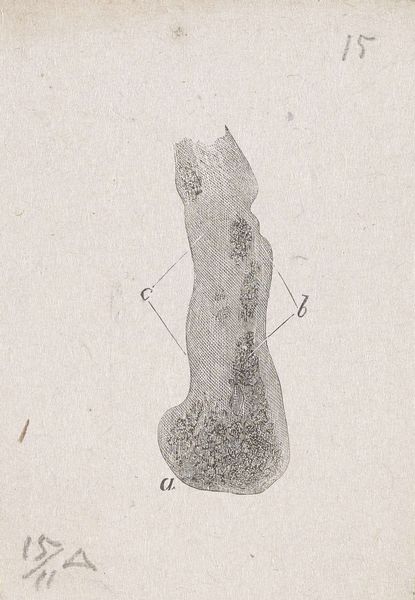
Onderdeel van het menselijk lichaam met een afwijking 1836 - 1912
0:00
0:00
isaacweissenbruch
Rijksmuseum
drawing, print, ink, pencil
#
drawing
#
light pencil work
#
blue ink drawing
#
shading to add clarity
# print
#
pencil sketch
#
old engraving style
#
form
#
personal sketchbook
#
ink
#
pen-ink sketch
#
pencil
#
line
#
sketchbook drawing
#
pencil work
#
academic-art
#
sketchbook art
#
realism
Dimensions: height 75 mm, width 57 mm
Copyright: Rijks Museum: Open Domain
This is Isaac Weissenbruch’s depiction of a so-called defective human body part, created some time in the 19th century with an unknown medium. At first glance, this image appears to be a straightforward anatomical study, but let's consider the context in which it was made. In the 19th century, scientific illustrations like this were often intertwined with social and political ideologies. Ideas about race, gender, and class were frequently mapped onto the human body. How might a seemingly objective image of a "defective" body part have been used to reinforce existing power structures or to pathologize certain groups of people? Consider the emotional impact of labeling a body part as "defective." What does this imply about the person to whom that body part belongs? And how might such labeling contribute to feelings of shame or alienation? Is Weissenbruch’s image documenting, or judging? By exploring these questions, we can begin to unpack the complex ways in which scientific and artistic representations have shaped our understanding of the human body and its place in society.
Comments
No comments
Be the first to comment and join the conversation on the ultimate creative platform.
